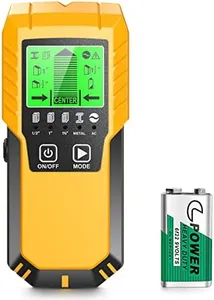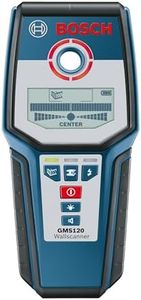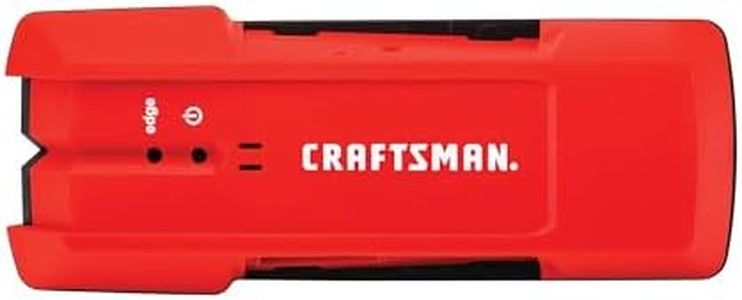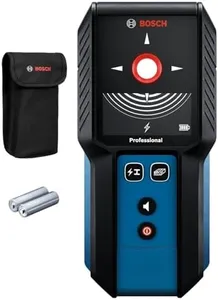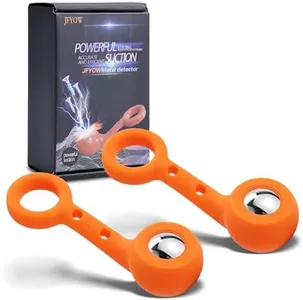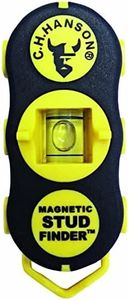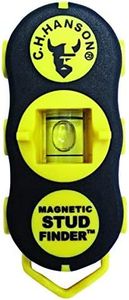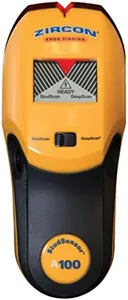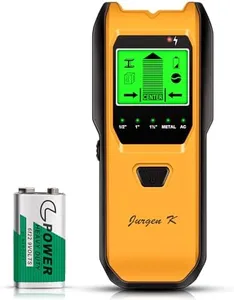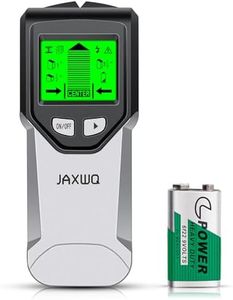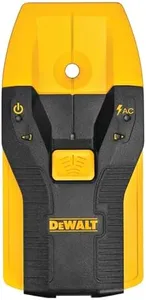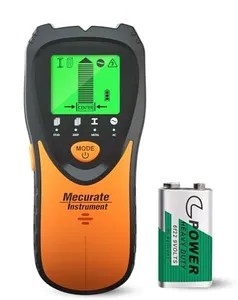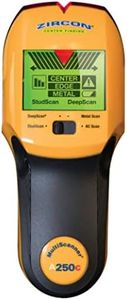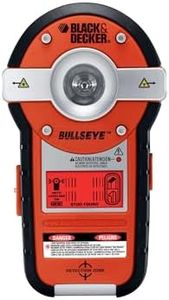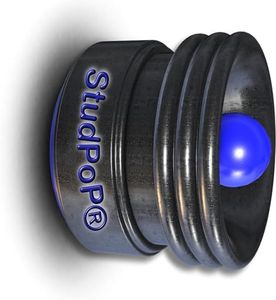10 Best Stud Sensors 2025 in the United States
Recommended lists
Our technology thoroughly searches through the online shopping world, reviewing hundreds of sites. We then process and analyze this information, updating in real-time to bring you the latest top-rated products. This way, you always get the best and most current options available.

Our Top Picks
Stud Finder Wall Scanner Detector - 5 in 1 Electronic Wall Wood Metal Stud Locator Edge Center Sensor Beam for Live AC Wire Pipe Metal Lumber Joist Drywall Framing Detection
Most important from
3217 reviews
This 5-in-1 stud finder offers a solid range of detection modes that cover wood studs, metal, pipes, and live AC wires, which makes it versatile for various home projects. Its ability to scan up to about 1.5 inches deep for studs and up to 2.36 inches for metal is useful for typical walls, though it may not work as well on very thick or dense walls. The device is praised for its accuracy thanks to advanced sensors and clear LCD with backlight, making it easier to find stud edges and centers without guesswork.
It also alerts you to live wires continuously, adding a safety layer against accidental drilling into electrical lines. The tool is user-friendly with audio alerts and a durable, dust-resistant design, which is great if you want something that lasts and is simple to operate. It comes powered by a single 9V alkaline battery, included out of the box, but since it relies on a 9V battery, you might need replacements after extended use. Some users find the size and weight comfortable, though it is a bit lightweight which may feel less sturdy.
This stud finder represents a reliable choice for DIY enthusiasts and professionals needing a multi-purpose scanner, especially if you want to avoid wall damage and electrical hazards while hanging shelves or mounting heavy objects.
Most important from
3217 reviews
BOSCH GMS 120 Wall Scanner with Modes for Wood, Metal, and Live Wiring, Includes 9V Battery, Hand Strap, & Pouch
Most important from
4410 reviews
The BOSCH GMS 120 Wall Scanner is a versatile tool designed for detecting wood studs, metal objects, and live wiring. Its multi-mode detection capability makes it suitable for various scanning needs, which is a significant strength. The automatic center finder feature is particularly useful, as it helps you accurately locate the center of detected objects, enhancing precision in tasks like hanging shelves or mounting TVs.
The illuminated graphical display provides clear information about the mode and detection strength, making it user-friendly. Additionally, the audible detection signal offers another layer of convenience, allowing you to know when an object is detected without constantly looking at the display. The detection status ring with green, orange, and red indicators simplifies understanding the scanner's readings at a glance.
However, the 0.5-kilogram weight might be a bit heavy for prolonged use, and the lack of connectivity technology means it doesn't offer advanced features like data logging or syncing with apps, which some modern users might expect. The included 9V battery, hand strap, and pouch are practical additions, making it ready to use straight out of the box and easy to carry around. On the downside, the need to replace 9V batteries might be seen as a drawback compared to rechargeable options. The BOSCH GMS 120 is a robust and accurate tool for users looking for reliable stud detection, though it might not appeal to those seeking more tech-integrated solutions.
